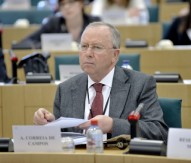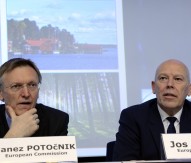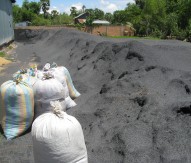
EU: Investing in climate action
Tackling Europe’s grand societal challenges is a core focus for Horizon 2020. The pillar will receive by far the largest budget allocation; an estimated €27bn. One of the core changes introduced in the replacement for FP7 is a greater focus on research co-operation and a tearing down of individual budget lines amongst the seven core objectives of the Societal Challenges pillar, thereby encouraging interdisciplinary projects.
As Europe prepares for the start of Horizon 2020 next year, the League of European Research University’s (LERU) autumn reception focused on the next research and innovation framework programme. Entitled ‘ERA at the Horizon of 2020?’ and attended by Horizon 2020 Projects, Dr Jos Delbeke, director-general of DG Climate Action in the European Commission, provided his thoughts on the role climate research and the wider societal challenges will play in Horizon 2020. He began by outlining the achievements the European Commission had made regarding climate action in the 2014-2020 Multiannual Financial Framework (MFF).
Delbeke said: “We are a very intensive user of whatever comes from science, technology and policy development. Made by engineers, economists, philosophers, we need them all and that’s why I strongly support them as part of our future activities; social sciences and humanities also have an important role to play.
“It is also fair to say that here, at the Commission, we were quite glad that we could convince that at least 20% of funds of the EU’s MFF between now and 2020 will be spent in relation to climate change, directly or indirectly. That translates to a joint commitment of 25% of spending under Horizon 2020, which will be gladly used. Yet it is not only about climate research – climate is in all facets of our economy and society. It is a great transformation that we are going through – in our region, we talk about energy, transport, how we organise our lives, how we organise recycling and how we organise the broader environment in which we live. That is where there is a lot more to learn and a lot more to be brought to the table of the policy makers.
“Without any exaggeration, climate change is possibly the most researched environmental topic that we have seen in recent times. It’s only what’s in the science that comes to the table and in what we can make policy; the science is where we can begin to learn about the paths that our society is making, and those it should be making in the short-term, medium and long-term,” he added.
“Mitigation has been researched a lot, but adaptation is a new area in which we need to invest more. We know that we need to reduce our emissions – in Europe, emissions have been shrinking to by 10-11%, but not by much more due to policies, changes in the world economy and the rise of China. Therefore, we should not only look at what we do with Europe, but also at what can be done worldwide.”
Transport
The director general continued by highlighting the importance of green transport in reducing the effects of climate change, in addition to changing the mindset of society.
“Policy experimentation is perhaps the most valuable contribution that we can make to the world in Europe and that applies to mitigation as a device for adaption. We have developed comprehensive legislation on how to reduce the emissions from cars and we can now recycle cars. Yet we should have another vision: what is the place of the car? How do we organise our urban infrastructure? How do we live together? How do we manage traffic streams in order to get out of traffic jams? How do we organise public transport? How do we incentivise people to use public transport and use environmentally friendly cars? All these areas go very deep and beyond the development of a clean car,” added Delbeke.
“Psychology also plays a role. The car is part of a much wider question about how to organise transport and how we live together in an urban area. So regarding mitigation, there is a wealth of issues that are still to be researched by social sciences and humanities.”
Adaption
Adapting to climate change was also highlighted by Delbeke, particularly the concerns regarding the future of fresh water. He said the Commission eagerly awaited more research to assist with upcoming policy making decisions.
“Adaption today is too much about how can we increase our dykes in order not to be flooded and when are the sea levels going to rise. It goes beyond that to the question of our action when we lose our fresh water supply and how are we going to deal with the glaciers disappearing? It’s not just in the Alps where millions of people depend on fresh water supplies coming from the glaciers.
“There is a lot more to be learned about saving water and the scarce resources that we have on the planet. We are very eagerly looking forward to a lot more research, a lot more evidence that can be brought to the table of policy makers and we are very eager to use these results.”



